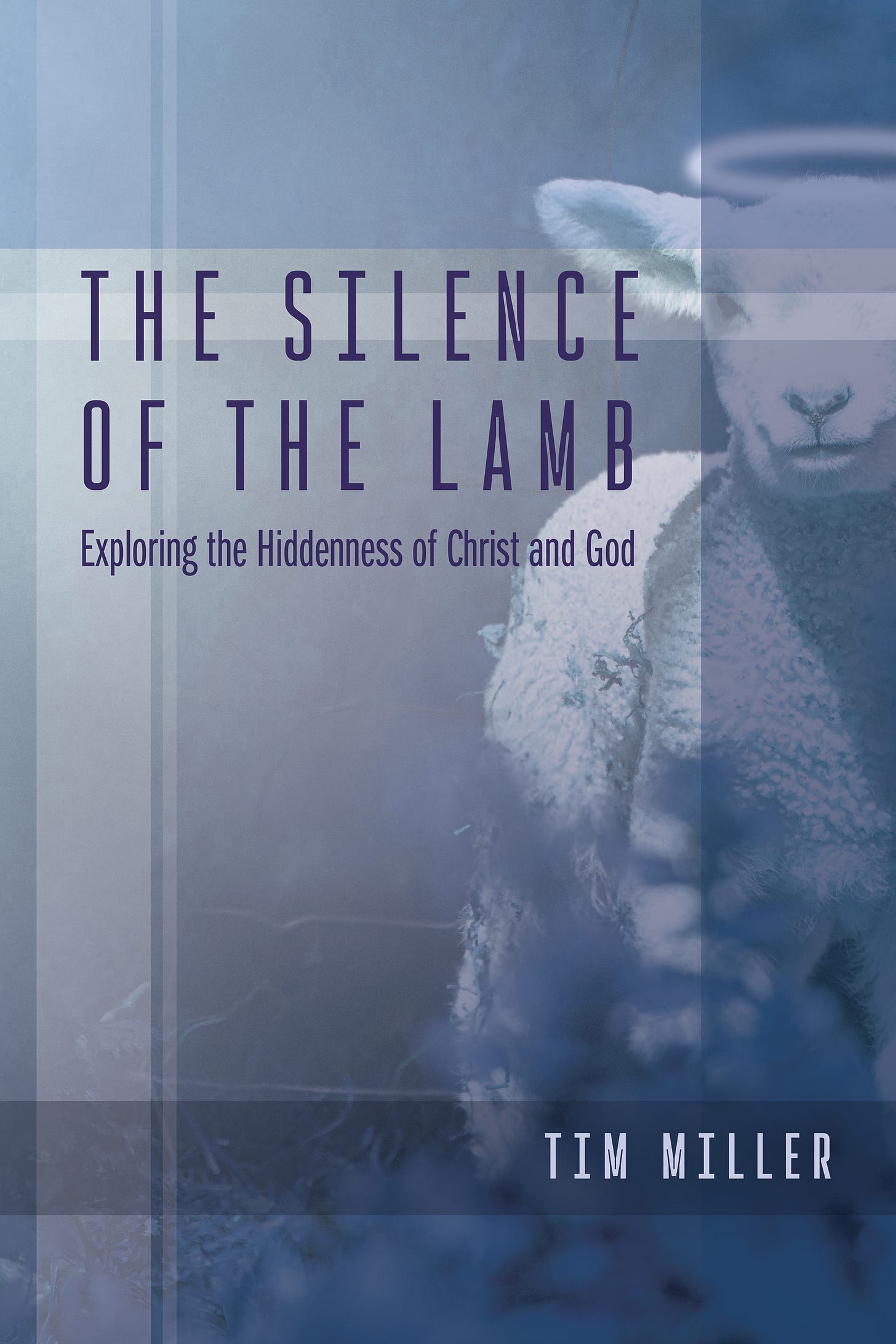Theory #3: Creation is totally good and we just don’t see it
Part 3 of Why Consider an Evolving God?
This post is part 3 of a series titled Our Evolving God.
Part 1 reflects on how the laws of physics in our universe, which ultimately lead to all the suffering caused by evolution through natural selection, present a big problem for people who want to believe in a good and loving creator God. And it explores Theory #1: No God or bad God.
Part 2 presents various concepts of The Fall and shows how they fail to adequately explain why God is good in light of suffering and divine hiddenness. It also hints at some variations that might explain things better. Those we’ll get to in a later post.
Here is theory 3: suffering and divine hiddenness are part of God’s glorious plan.
Maybe God has good reasons for wanting us to suffer without much access to Sh-his comforting presence. There are a number of variations on this idea and we’ll take a quick look at them.
The most obvious variation is that God so far exceeds our understanding that we simply can’t grasp what Sh-he is up to. Nor can we understand communications from God because they are so far above and beyond our mental capacities. Suffering is just what we need, and if we were smarter and more capable of understanding the big picture, we would realize that God is constantly telling us all we would need to know to understand Sh-his amazing plan.
This is how people argue who appeal to God’s transcendence. God transcends us unimaginably and there is simply no way we can expect to grasp, in our current form, the full meaning of what we experience. What we need to do, these people claim, is relax, open ourselves to everything that happens, and trust that God is in control and knows what Sh-he is doing. Maybe we’ll understand it all by and by. Luther believed something like this. He wrote1 that there is the revealed God (in Scripture and in what bona fide preachers tell us) and the hidden God (whom we can never hope to understand or make sense of). His solution? Have faith and trust that God is good because the revealed God tells us Sh-he is.
People often use analogies to try to penetrate the transcendent fog a little. Here’s an analogy I am fond of. I used to have several cat companions. When one of them would get sick, I had to take her to the vet. Being trapped in a cat carrying case, loaded in a car, driven to the vet, being doctored (including being handled by intimidating strangers, poked with needles, having pills forced down her throat), and loaded back into the carrying case and car for the trip back home, caused her enormous stress and suffering. I always wished I could explain to her why all this was needed and that it was for her ultimate good. But despite being (presumably) a lot smarter than she, I was never able to figure out a way to make her understand. Such communication was beyond both of us.
This of course is not a perfect analogy. For one thing, I was always right there with my cat, comforting her as best I could. She could see and smell me clearly. She could feel my familiar, comforting hands on her. When I suffer, God and God’s comfort are rarely perceptible to me. For another, God is presumably not just more intelligent than I am but perhaps infinitely more intelligent. And since God designed the laws of the universe that have led to my being how I am, surely God could figure out how to reach me in ways I can grasp and readily perceive.
No analogy is going to provide a full explanation. But the big problem with transcendence, the real problem, is that God could do anything or be anything and we would just have to accept that God is good. If God says love your neighbor, we have no trouble seeing that as something a good God would command. But what about when God says, go into the land of Canaan and slay every man, woman, child, and animal, then take over the land as your own? That seems a little extreme to most of us, but (we’re often told) we just can’t understand our transcendent God and we have to trust that the command is coming from a being who is good and wise. God could tell us anything, or do anything, and it would make no difference to people who really really want there to be a nice God. God is good and that’s that.
Most people can’t handle that much transcendence. Some can, though.
For those of us who can’t, is there some way other than appealing to divine transcendence to see that suffering and travails, while unpleasant, are actually good for us? That the death of our child actually does make sense? That the Holocaust not only had to happen, but created so much good in the very long run, despite appearances, that we should celebrate it?
Christian theologian Arthur C. McGill was the author of several short but profound books including Death and Life: An American Theology and Suffering: A Test of Theological Method. One of his key ideas is that God wants us to learn to expend ourselves completely in service to one another just as Christ expended himself to the point of death for our salvation and in service to the Father. We are not just to give out of our surplus but to render all we possess so we fall into need ourselves and are thus in a position to be served by others. And that will often mean we must risk losing life itself.
Where this notion gets really interesting is in McGill's assertion that need and death are features not just of this life but of the next as well. What will be different in Heaven, he claims, is not that death won't exist but that it won't be obligatory and painful. Rather, we will stop resisting it—which causes the pain—and instead we'll be eager to die for one another (and of course we'll be resurrected each time so we can die for others again and again). We will embrace death (giving all that we possess), realizing that this is the central ecstasy of existence, just as the Father and the Son eternally give their all for each other and for us.
In this view, God set up the universe so this total giving to others is central to living and thriving. We see it in nature (the law of the jungle) and we will see it in Heaven as well. And it is our resistance to this self-giving, self-emptying way that creates our suffering. Once we abandon resistance, once we embrace self-giving love to the full, the suffering ends.
So, this type of thinking says, the truth is there for us to latch onto, and it doesn't transcend our minds so radically that we can’t grasp it. It is counterintuitive, and very hard to put into practice, but we can come to grips with it if we really try.
Hard as that is to swallow, I think it might actually be true. It’s a possibility that I just can’t quite make myself rule out. But I doubt I’ll be able to practice it anytime soon. I am not open enough. I’m too self-protective. And I bet you are too. So I want to keep exploring ideas and maybe we can find one that isn’t quite so daunting.
There’s another way of seeing how suffering and divine hiddenness might actually be for our own long term good, one with variations that philosophers and theologians have been thinking and writing about for centuries. That’s what we’ll explore in the next post.
Thanks to Gemini AI for the above images in this post.
Two exciting new books are being published today (May 1, 2025):
I consider similar questions and ideas in my book The Silence of the Lamb: Exploring the Hiddenness of Christ and God which is being published today in Kindle and paperback form.
My good friend and gifted Episcopal priest Gayle Browne’s book Wild Geese Rising: Living Prayer as Moment-by-Moment Contemplative Action is also being published today. I highly recommend both books.
The Bondage of the Will by Martin Luther.







their is another thought that comes to mind about suffering. I wonder if God were to use his megaphone and speak to us directly and tell us the reason or reasons why of suffering, I think we would NOT accept it anyway. I think we would reject it and still shake our fist at God about it. No explanation would be good enough for us i think for suffering. So God maybe in his infinite wisdom uses hiddeness and silence, knowing that we would not accept his explanation anyways. So i think either way Human beings would not be happy, if God hides from us, bad, if he tells us outright, bad. I don’t know i wonder if that is the truth ultimately and that is why God does not give us an explanation at least not in this life, maybe when we have transcended this plane of existence maybe then we will be more enlightened and be able to not only see God face to face but accept all things. just my 2 cents
When people appeal to G♡d’s transcendence, the usual statement is, “G♡d is so far beyond our understanding that we just have to trust whatever happens is good.” This view tries to defend divine goodness, but it can become a blank cheque for divine inaction or cruelty. It is one thing to accept mystery; it is another to excuse silence... using that mystery as an easy answer to avoid asking tough questions about G♡d’s hiddenness, suffering, and moral accountability.
The McGill section was fascinating. The idea that of Heaven as a place where even death becomes a joyful act of love is both haunting and strangely hopeful. I now realise the reasoning behind the question you left nder my blog post. :)
I respect how you wrestle with these ideas honestly instead of preaching easy answers. Still catching up on this series and looking forward to seeing where you take this next.